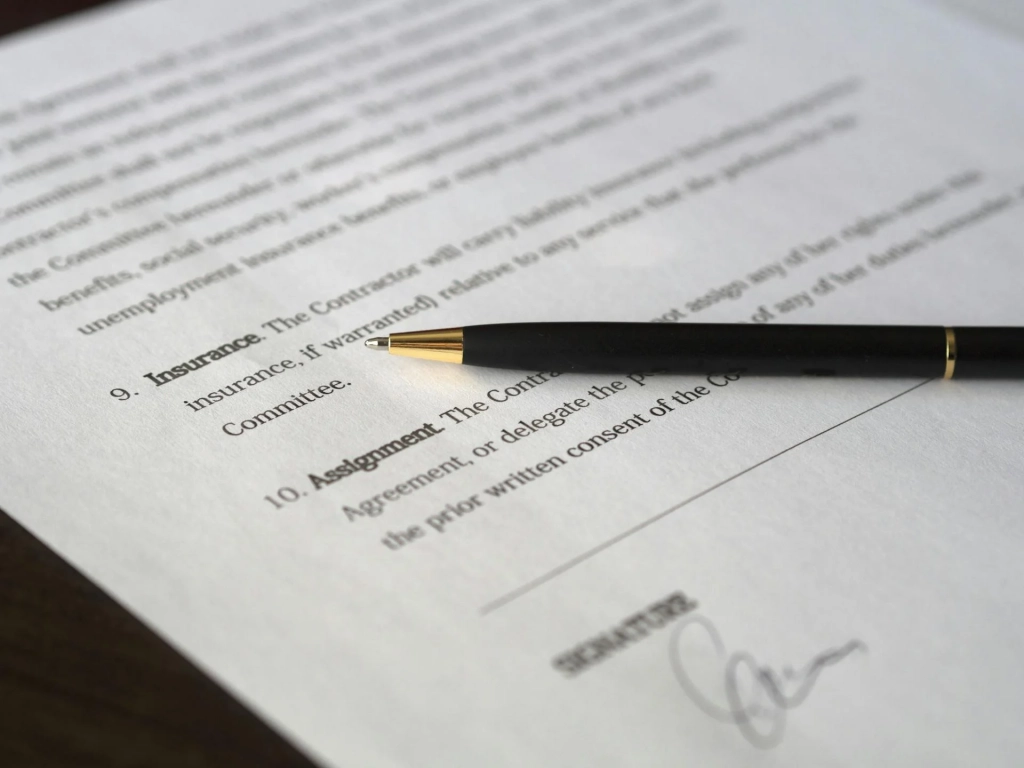Going abroad to live and work has its own set of challenges, but nearly every expat agrees on one thing: housing is probably the biggest priority and the most agonising aspect of creating a new life in a new country. While bureaucracy and legal matters have come a long way from standing in lines for hours and filling out endless paperwork, thanks to digital technologies, finding the right apartment often revolves around taking the traditional route.
Still, we at Robin think we can help with a comprehensive article. So, how to rent an apartment in the Netherlands in 2026? Read on to find out.
The Dutch Housing Market in 2026 at a Glance
The housing market in the Netherlands remains strong and stable, with experts having forecasted a sharp increase in property prices and rent costs. To be more specific, the increase of property prices was forecasted to grow by 7.5%, while the rental price increase was estimated around 7,7% making both buying and renting property a bigger challenge than before.
However, at the end of Q1 2026, actual prices reflected a 9.6% increase year-on year, which means that the average rent per square metre reached €19.64. In the case of single-family houses and apartments, the increase was more profound, standing at 12.0% and 10.2% respectively.
Such prices pack considerable challenges not just for expats but locals as well. Rental agents usually require three times the gross income of the monthly rent, which averages out €1,781, which means that the required monthly income would need to be at least €5,340, which is well above the Dutch average €3,458 (gross) in 2026.

Source: Pexels
The costs alone can pose serious challenges to finding an apartment in the Netherlands, and the associated leg- and paperwork can only add unnecessary complexity to the process.
Still, this doesn’t mean that finding an apartment and paying rent in the Netherlands is impossible. With more knowledge under your belt, you can find a decent place where you can get a fresh start in the country.
Types of Rental Properties
First off, a large chunk of rental properties in the Netherlands are social housing, meaning that rent prices are capped and fixed. These options are controlled tightly and only accessible to families that earn below a specific amount (around €34,000), with tight ties to a specific area. Expats rarely qualify for these housing options or end up on endless waiting lists.
As such, most foreigners look for the private market, where prices can be much higher. Especially in places such as Amsterdam, where finding something worthy between €700 and €1000 might even be impossible. Outside the option of Amsterdam apartment rentals, you can find more affordable arrangements in other cities.
In addition to social and private housing, you may also come across “antikraak” rental arrangements, offered by anti-squatting companies that subdivide vacant properties for low prices to keep squatters away. While this may sound like an okay temporary idea, however, in these arrangements, tenants have little to no rights in disputes.
On the other hand, there are several options you can choose from, based on living arrangements.
- Apartments: You have a whole apartment to yourself, great for privacy, but renting an apartment in the Netherlands can be overly expensive for one person..
- Houses: Great for families, however, renting a house in the Netherlands can be even costlier than in the case of apartments.
- Rooms: Sharing an apartment with other people can be a great way to save money but sacrifices privacy.
- Landlord Hosting: In these arrangements, families or landlords rent out a part of their house, mostly for students.
- Short-stay Apartments: Fully-furnished apartments for people who are not staying for long.
Housing Arrangements Via Robin
While some of these options can be great for expats starting a new life, it will still be overwhelming and complicated to find a place to stay for the long-haul, especially if you haven’t even left for the Netherlands. This is where Robin can help, indirectly. We’ve partnered with a large network of agencies that offer accommodation right off the bat. While in most cases, you will have to share the place with other workers, the rent is low, often automatically deducted from your wages, at a much lower price than other rentals on the private market.
Where to Look for Rentals?
There are several platforms where you can look for rental properties in the Netherlands, from the comfort of your home. In the Netherlands, here are some of the most popular options:
1. Pararius
Pararius is great for finding houses, studios, apartments and rooms, with average prices ranging between €1,000 and €2,500 for apartments, and €500 to €800 for rooms. The platform is free, has no subscription fee for full access and expat friendly. However, being one of the largest platforms, it can be highly competitive, making the hunt for cheap housing more difficult.
2. RentHunter
RentHunter is also a free-to-use platform where you can find housing options, with both long- and short-term rentals. However, in order to receive alerts, you need a subscription, and further subscriptions may be needed to access premium features. It’s an aggregation platform, which searches other platforms (such as Kamernet and Pararius), displaying all hits based on your search criteria.
3. Kamernet and HousingAnywhere
Kamernet & HousingAnywhere are both focused on student and shared housing, with average rent prices howevering between €800 and €1,200, offering a large selection of affordable rooms and a great community that can help you find a place quickly.
Browsing the listings on both platforms is free, while contacting landlords requires a subscription. Also, it’s more focused on young renters and students, so it might not be ideal for all blue-collar workers.
As you can see, a lot of these options are either overly expensive or not particularly adequate for workers, who don’t want to live together with students who have more relaxed schedules. In this regard, Robin’s network can serve a great alternative, as you, first, don’t have to browse different platforms and pay subscription fees to access rentals. Second, you will get decent shared arrangements with like-minded people for less money, enabling you to save, socialise, and focus more on your work at the same time.
Required Documents and Rental Contracts in The Netherlands
If you opt to find an apartment through an agency, prepare to disclose a fair amount of information and necessary documents to Dutch real estate agents. While it may not be applicable for expats, some may even perform credit checks to make sure the future tenant hasn’t got bad credit or debts.

Source: Pexels
No matter what the case is, the following documents will probably be necessary:
- Valid passport or ID
- Proof of earnings (Dutch bank statements or employment contracts)
- BSN number or citizen service number
Don’t forget that when looking for rent through an agency, you will also be expected to pay administration fees besides the standard upfront costs.
If you rent directly through a private landlord, the process will most likely be very similar, especially in terms of deposit and rental agreements. This approach can help you save money, because there are no agency costs, but you are the one who has to make sure that you get a proper contract where your rights as a tenant are protected.
About Rental Contracts
Typically, rental contracts in the Netherlands are pro-tenant and they can either be written or oral. However, experts often advise opting for a written contract anytime its possible, as your rights remain more secure and can be referred to in dispute cases.
In terms of the rental period, there can be several types of contracts:
- Unspecified: These are essentially indefinite contracts, where tenants can leave at any time after giving their landlord one month’s notice.
- Unspecified With Initial Minimum Renting Period: This contract binds the tenant for the rental property for a specified period (often only a year), during which they cannot leave. After the period ends, tenants are free to leave and the contract converts to an unspecified contract automatically.
- Fixed Period Under Two Years: These contracts end automatically on the date you agreed upon, after which, you will have to move out. The landlord is bound by law to remind you one to three months in advance about the termination of the contract, and if you didn’t receive their notice, you have the right to say. You can decide to terminate the contract before the lease expires, as long as you give a notice one month before leaving.
- Fixed Period Over Two Years: You cannot leave before the specified two years is over and after that, the contract becomes indefinite.
Usually, the content of the rental contracts will have the following information:
- House rules
- Maintenance agreements
- If applicable, the dates on which rent will be increased yearly
- The landlord’s and your signatures
Rights and Obligations
Naturally, the contract between you and the landlord will also include all the obligations and rights you and the property owners have. This makes it easier to see what is expected of you and what your rights are in case of a dispute.
Usually:
- Minor repairs are either paid for or carried out by the tenants.
- Larger repairs are usually the landlord’s responsibilities
- In latter cases, the tenants should give the landlord free access to the rental properly to carry out the repair.
Depending on the rental and the agreement and the tenant, basic telecom and utilities will either be your or the landlord’s responsibility. Usually, the landlord sets up accounts for gas, electricity, phone, TV, and internet in the Netherlands, and will add the necessary monthly costs to your rent, giving you full details of the additional charges.
Rental Costs
We’ve already touched bases on rental costs. The government implements rent control on social-rented homes, according to a strict value system, or the woningwaarderingsstelsel, which establishes the maximum price of rent for social housing properties.However, these capped arrangements do not apply to rented properties in the private sector. That said, here’s the breakdown of all the costs involved in renting an apartment in the Netherlands.
Monthly Rent
While we already highlighted an average monthly rent cost, other sources, like Numbeo, cite that the average price for renting a three-bedroom apartment hovers between €1,250–1660 a month, while a one-bedroom apartment is between €1,250–1660.
In most cases, you pay rent upfront each month, either via a direct debit or standing order with the help of your bank.
Rental Deposit
Tenants also usually leave security deposits with the first month’s rent. The sum is usually one or two month’s rent.
When the tenant moves out, the landlord will return the deposit, although, they might withhold the money tenants may owe for damages or rent.The landlord is the one who must refund the deposit by the end of the tenancy, and tenants have the right to sue if their landlord fails to do so.
To be on the safe side, we advise you to sign a written record that details the condition of the rental when moving in.
Administration and Agency Fees
If you opt to find a rental property through an agency, you will need to pay the associated fees.Just like the security deposit, these are also equated to one month’s rent, and will usually be paid with the initial deposit and first rent. If the landlord hires the agency, they will be responsible for paying the fees.
Insurance
After moving in, we advise protecting your belongings and getting home content insurance. These policies can protect you against unexpected damage, burglaries, and more. Some rental contracts in the Netherlands even demand you to take out this type of insurance.
Other Related Costs
Along with rent, you will also have to cover other accommodation costs, such as:
- Utility bills (electricity, gas, internet(
- Municipal taxes (it may be included in the rent, but you may have to pay them separately
- Furniture – Most Dutch apartments up for rent are unfurnished so it’s not a bad idea to have a budget set up for furniture as well.
Tips for a Successful Rental Experience
Often, the overall experiences you have as a tenant greatly depend on you. White that’s not to say that there aren’t any difficult landlords out there, but there are quite a few things you can do to make your stay a smoother sail.

Source: Pexels
Here are a few things we’d highlight:
Pay Rent on Time
Consistency with your payments is key to keeping your landlords happy. This makes you a reliable tenant and may help you later on, as you’ll have great references from them when you move out and search for another place. Agree on the most preferred method of payment and try to stick to it as rigorously as you can.
Communicate Everything
Bring up any changes, maintenance issues, and other relevant subjects to your landlord once you notice them. This ensures that they are always kept in the loop and don’t have unpleasant surprises during your stay. Also, be realistic, and if you have non-emergencies, don’t pressure your landlord to act immediately. Chances are, they also have other tenants and priorities, and you don’t want to ruin your relationship with things of smaller magnitude.
Keep All Agreements
Ensure that all of the written agreements, contracts, and even receipts are stored safely. While chances are, you won’t need them, it’s always better to be safe than sorry, especially if something unpredictable happens and you find yourself in the middle of a dispute.
Keep The Place Tidy
Go the extra mile to keep the apartment clean. This can help you avoid more serious issues in the future, like pest infestation, mold buildup, and other issues. This is essential not just to get your security deposit back when you move out, but for your own health and safety as well.
Let Robin Help
If you are looking for a job in the Netherlands, chances are, you are already overwhelmed as it is. On top of getting the job, you also need to arrange your travel there, acquire the necessary work permits, and get the required paperwork to legally start working. In a hectic situation like this, looking for expat housing in the Netherlands is probably the last thing on your mind.
This is where Robin can help you. With a trusted network of employers who offer accommodation at agreeable prices, you will be able to focus on your new role and integrating into your new environment, while staying at a place that will enable you to save money and have peace of mind while doing so.

 English
English  Lietuvių
Lietuvių  Latviešu
Latviešu  Polski
Polski  Português
Português  Română
Română  Slovenčina
Slovenčina  Magyar
Magyar  Русский
Русский  Espanol
Espanol  България
България  Čeština
Čeština  Italy
Italy  Croatia
Croatia  Greek
Greek 

